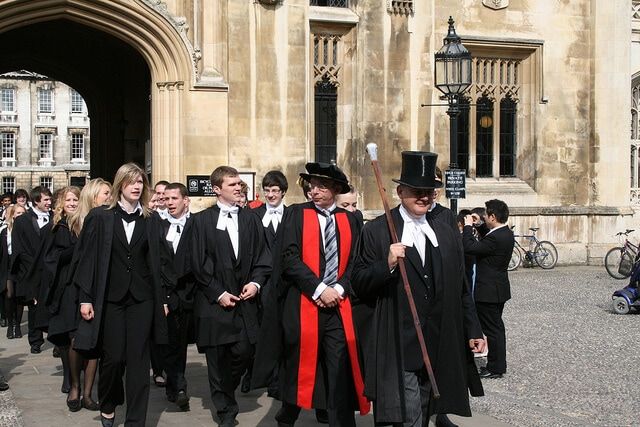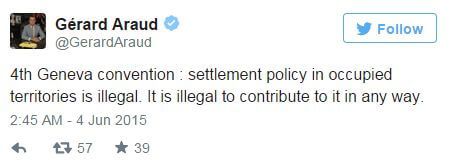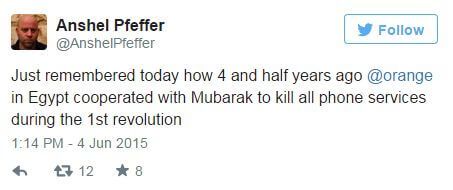Today’s Top Stories
1. The French telecom giant, Orange, severed ties with its Israeli subsidiary after CEO Stephane Richard provoked a firestorm by saying he’d cut ties with Israel “tomorrow” if not for the huge penalties that would be incurred.
Israeli officials demanded the French government denounce Richard’s boycott call. Partner Communications Ltd, which operates Orange’s Israeli franchise, is weighing legal action. Partner’s owner, Haim Saban spoke out, while employees in Rosh HaAyin turned Orange blue and white.
See HonestReporting’s take: Orange CEO: We’d Leave Israel “Tomorrow.”
2. YNet: The Israeli Air Force hit three Hamas targets in Gaza in response to overnight rocket fire. Three Palestinian rockets landed in open areas causing no injuries or damage.
Ron Ben-Yishai and Avi Issacharoff explain an Israel-Hamas-Salafist triangle of sorts. Only in Israel, right? Issacharoff writes:
The Salafis threatened to respond within 48 hours to the killing of one of their prominent activists by Hamas security forces. While one may have thought that the Salafi retaliation would target Hamas headquarters or positions in the Strip, now it is clear that the preferred response is rocket fire at Israel. Even the jihadi groups have realized that Hamas’s main priority right now is to keep the peace.
Ironically, Israel in recent months has been the main lifeline for the Hamas regime in the Strip. Moreover, the Jewish state is virtually the only regional and global player keen on keeping Hamas in power.
3. IDF source: “We’ll evacuate more than a million civilians in south Lebanon within 24 hours before proceeding to strike thousands of Hezbollah targets in some 240 villages and built-up regions.”
Israel and the Palestinians
• If Paris doesn’t handle L’affaire Orange carefully, it’ll waste political capital with Israel by the time French diplomats present a Mideast peace initiative to the UN later this year. That’s what came to mind when I saw this tweet by the French ambassador to the US, Gerard Araud.
• Worth reading: Professor William Jacobson visits the Negev Bedouins to get a first-hand look at problems both “real and imagined.”
The heart of the conflict is Israel’s attempt to bring organization to the Negev population, including utility services, building codes and education to the Bedouin spread out in hundreds of locations in rundown tents and shacks. A nomadic or semi-nomadic lifestyle is incompatible with a modern state, particularly in such confined space . . .
There is an element of exploitation at two levels. First, tents sometimes are pitched with the knowledge of where a road is planned, in the hope that the government will pay extra. Also, false claims sometimes are made as to how long a home or group of homes have been in a location. We passed one solo hilltop tent/shack, and the official explained that the family rotates having someone stay there; they claim that they have been there for years, but he has satellite images showing that they were not there even a month ago.
Second, international organizations exploit situation to organize protests . . .
• Irish Times journalist Michael Jansen wins today’s Lead Screed, tying together quotes from various Palestinian personalities and left-wing Israeli activist Jeff Halper. It’s the first of a three-part series, so stay tuned for more headlines and chestnuts like these:
He argues Palestinians do not face South African-style apartheid but “warehousing”, the situation of inmates in US prisons, locked away and excluded from society.
• YNet takes a closer look at how Israeli banks, real-estate companies, security firms, hi-tech products, and agriculture are impacted by BDS.
• An umbrella group representing 113 UK universities distanced itself from the National Union of Students vote to align itself with the anti-Israel Boycott, Divestment and Sanctions movement (BDS). This is from the statement of Universities UK.
Given the reported perception in Israel that UK universities support an academic boycott, the board of Universities UK wishes to confirm its previously stated position that it is firmly opposed to any academic boycott of Israeli universities. The board also confirms its view that all universities must uphold, in the interests of free expression of ideas, the fundamental right of academics to question national and international policies.

Around the World
• Washington Post reporter Lally Weymouth discussed Mideast issues with Israeli Defense Minister Moshe Yaalon.
• With Qatar spending $200 billion on stadiums, roads, real estate, and infrastructure for the 2022 World Cup, the Wall St. Journal reports that the country’s banking, construction, and tourism sectors are at risk if it loses the tournament and investor confidence.
• Tony Blair to fight anti-Semitism and religious extremism in Europe. Blair laid out his plans in a Times of London op-ed co-written with European Jewish Congress chief Moshe Kantor. More background and links at the Daily Telegraph.
• The French town of La Seyne-sur-Mer voted to name a street after Yasser Arafat. The town already has a street named after Yitzhak Rabin.
• Spanish police arrested a woman who uploaded a number of videos calling for the maiming and “extermination” of Jews and Zionists.
Commentary/Analysis
• Tweet of the day goes to Anshel Pfeffer:
• Campus anti-Semitism has been decades in the making. Daryl Deino shares his perspective as a long-time California teacher:
Many educators will claim that although they are against Zionism, they are not necessarily anti-Semitic. There are blurred lines here, especially when the same educators revise history and teach students that Israel is similar to Nazi Germany in many ways. This is why millennials have contributed so much to Jew-hatred. It’s all based on lies they learned in their classrooms.
• On the fifth anniversary of the Mavi Marmara, Turkish journalist Burak Bekdil ponders what “Turkey’s flotilla” was really about.
By discreetly encouraging the flotilla, and possibly calculating its aftermath, the Turkish government aimed at two things: boosting then Prime Minister [now president] Recep Tayyip Erdogan’s popularity on the Arab Street and consolidating his votes among Turkey’s conservative masses. The first aim has dramatically failed, except in the Palestinian territories and Qatar; but the second has been achieved.
• I’m also reading:
– Dan Margalit: Anti-Semitism rejoices over boycotts
– Josh Mitnick: Sports as a new BDS arena
– Aaron David Miller: The Obama-Netanyahu wars continue
– Khaled Abu Toameh: Who is blocking Palestinian elections?
– Gregory Gause: Why isn’t there an anti-Iran alliance?
– Karl Vick: You really can’t tell your terrorists without a scorecard
Featured image: CC BY-NC-SA flickr/Ed Yourdon with additions by HonestReporting; Cambridge CC BY-NC-ND flickr/King’s College, Cambridge
For more, see yesterday’s Israel Daily News Stream and join the IDNS on Facebook.





